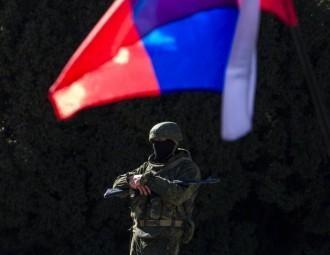Andrei Kazakevich: The current developments have mobilized the nationalist "Russian line"

After Crimean referendum Russia-Ukraine conflict has entered a new phase. Russia-Ukraine relations, and even Russia's relations with the countries of Eastern Europe, have drastically changed.
According to political analyst Andrei Kazakevich, the director of the Institute for Policy Studies Palіtychnaya Sphera (Political Sphere), Russia went the length of intervening in affairs of the neighboring states by funding political parties, bribing presidents, using media capabilities. But the occupation of Crimea is another story: in this case Russia has gone beyond the mark. “Now everyone is witnessing that the world is totally at sea: nobody knows how the situation should be taken. The EU, the USA are at loss along with most analysts who failed to predict such a scenario. In fact, after Russia played the game conventionally and lost twice, in 2004 and in February, 2014, it has decided to move the goalposts,” Kazakevich stresses.
In his opinion, for the last five years chauvinistic and nationalist sentiments have been overriding among Russian society, including the government. “Probably, since the mid-2000s they have been shifting to the idea of Russia's possessing the right to intervene. The issue of “one nation” has been mooted; the first signs of Russian authorities' Ukraine-phobia revealed themselves.”
According to media reports, there were cases of handing over small Russian flags to passers-by in the streets of Belarusian cities. Could this be regarded as another Russia's attack on our country?
“The current developments have mobilized the nationalist “Russian line”. Some 20% of the Belarusians could take it positively because they constantly look back at Russia, they watch Russian TV. Belarus turned out to be very susceptible in the information context because a lot of ideas which were brought about from Moscow worked and mobilized pro-Russian sentiments,” Andrei Kazakevich said.
-
03.01
-
07.10
-
22.09
-
17.08
-
12.08
-
30.09








































